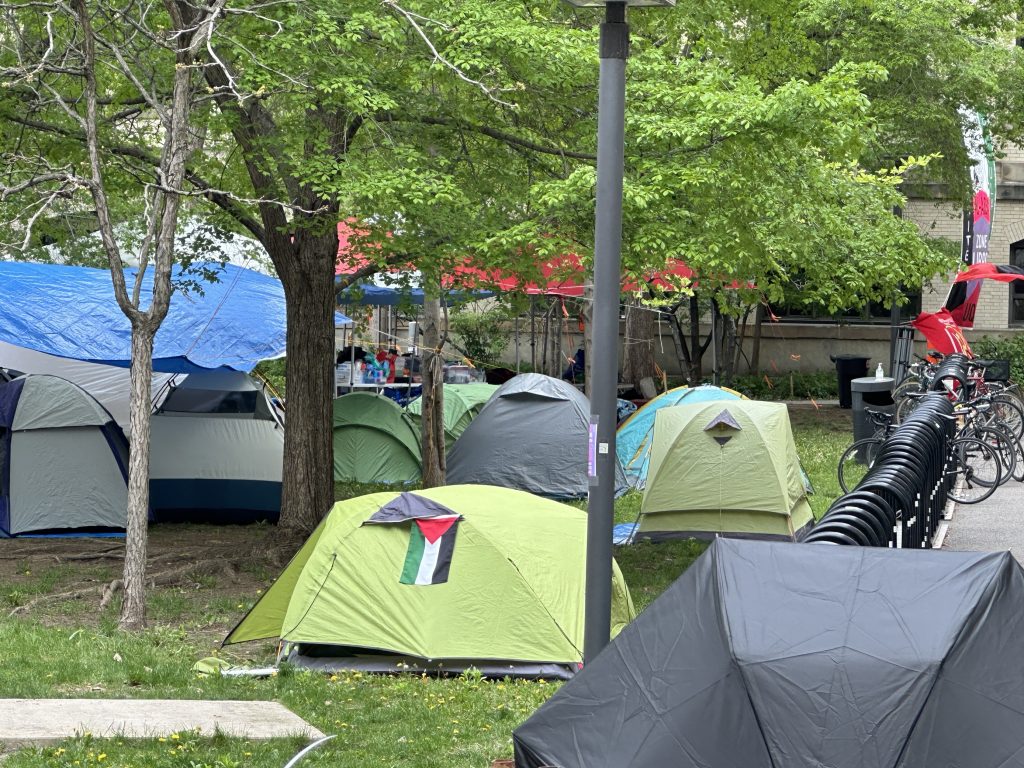Surging rents, lack of affordable housing leading to evictions and poverty, warns advocate
Posted June 29, 2022 4:21 pm.
Last Updated June 29, 2022 7:52 pm.
When July 1 rolls around – the official Moving Day in Quebec – it leaves many in Montreal in a vulnerable situation: evicted but with nowhere to go.
The City of Montreal and Quebec are both stepping in to try to help those in need, but housing and rental advocates say it’s not enough for some residents to overcome their struggles.
Amy Darwish, a community organizer with the Comité d’Action de Parc-Extension (CAPE), says she’s concerned many people might be without a place to stay as of July 1.
“We’re also worried that many will also be forced to accept an apartment that is far beyond their means,” said Darwish. “We’re worried it’s going to mean a lot of poverty and a lot of precariousness for people in the months to come.”
Vacancy rates are slightly up in the last year – now at three per cent, according to recent data from the Canada Mortgage and Housing Corporation.
But Darwish says the housing crisis hasn’t subsided.
“A lot of units where tenants were previously forced out, where renovations have taken place, are being put back on the market, often to double the rent that they were at previously,” she said.
“The apartments that are on the market right now are prohibitively expensive. For many people, it’s difficult to find a two- to three-bedroom apartment in the neighbourhood now for less than $1,200 to $1,300 a month.”
RELATED:
- Calls increase for more money as Montreal and rest of Quebec facing housing crunch
- Montreal joins forces with real estate partners to address housing crisis
- Housing crisis increasing homelessness in Montreal
That’s the case for Hamza Kaedri, who lives in a one-bedroom apartment off the island of Montreal, in Laval. His rent is $1,300 a month and is jumping to $1,500 next year. He says this increase doesn’t match up with his lifestyle.
“If it’s going higher I’ll change from Montreal to another, because you can’t pay more expensive than that,” said Kaedri.
The City of Montreal says they’re ready to support residents by helping with accommodations and temporary storage and even assistance in finding housing.
“The city often only rehouses those people if their families or if there are children involved, if people are in very precarious situations,” said Darwish. “In a lot of instances, this means people living in hotels, people having to buy food from outside, which ends up driving up expenses for a lot of tenants.
“And what it doesn’t do is address the real root of the problem here, which is that rents are exploding, that there are not sufficient measures to protect tenants against evictions, and most of all, that there just isn’t enough social housing.”
Quebec announced Wednesday the construction of 3,000 social and affordable housing units – 2,000 of those are expected to be built over the next three years.
But Darwish says the needs the needs are now – and it can’t wait.
“It is a drop in the bucket compared to what’s actually needed to address the housing crisis,” she said. “It’s also worth mentioning that 1,000 of those units are actually so-called affordable condos. Those are mostly geared towards homeowners. They will do very, very little to actually support the vast majority of low-income tenants who are struggling to find a place to stay.”
Darwish says part of the answer is pushing for universal rent control.
“It would take away one of the major incentives that landlords have to evict people, which is namely that they can hike the rent as much as they want after the previous tenant has left. We need real measures to push back against evictions to make it more difficult for landlords to kick out tenants.”



